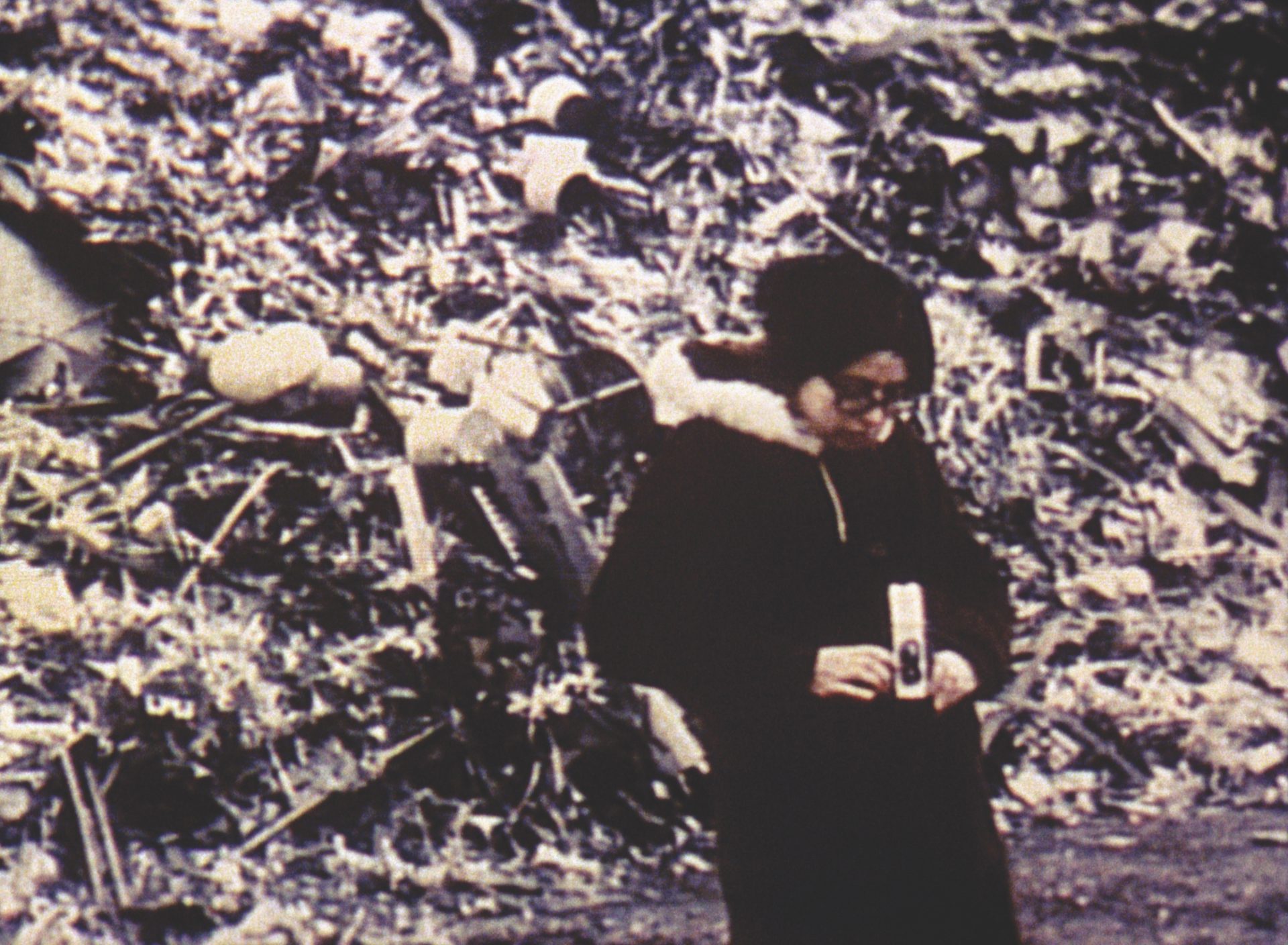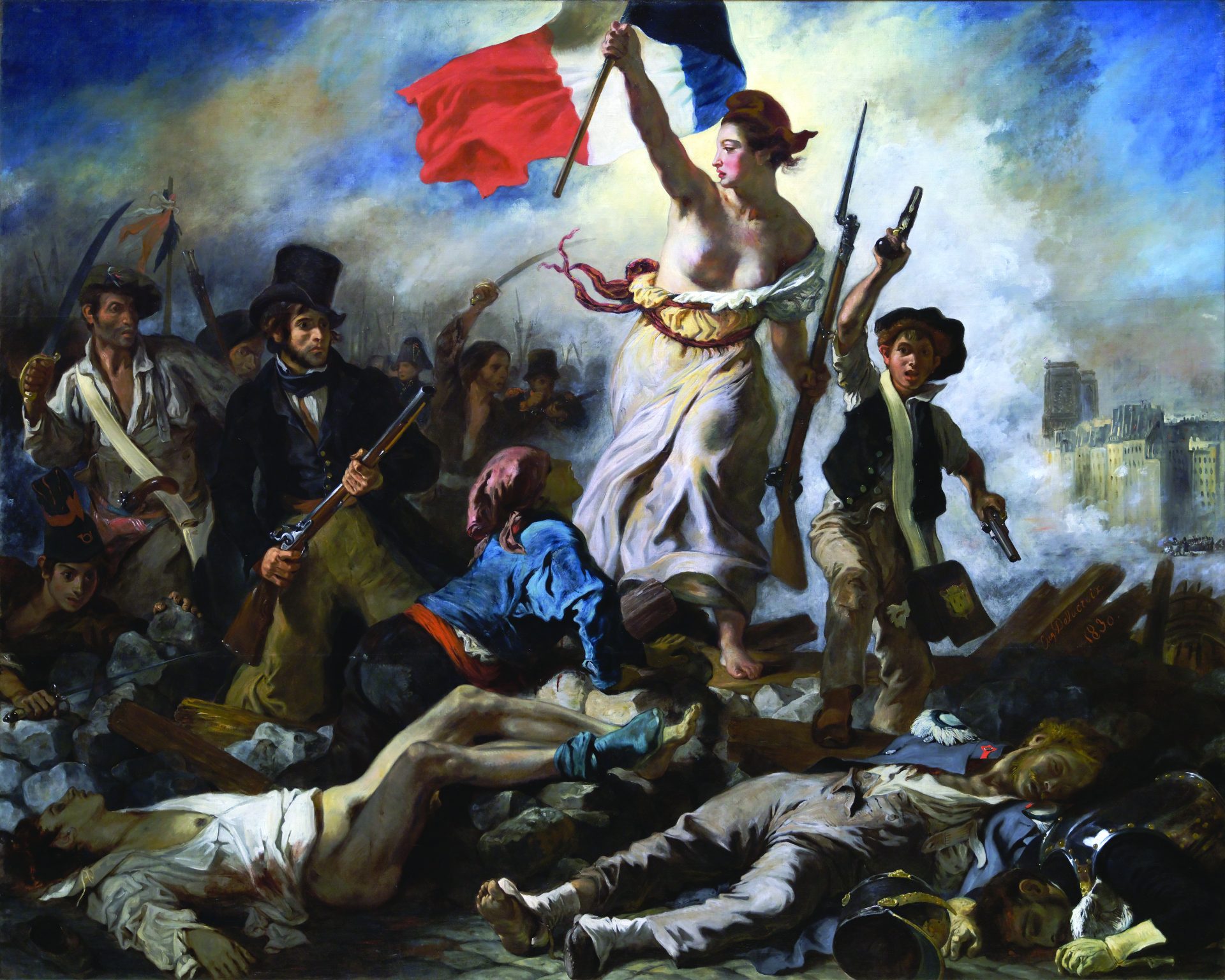More than a few years ago now, when I was living in San Francisco, I happened to walk by the office of a dot-com, a competitor in the online-pet-supply business, that had gone bust. It was midnight when I passed its brilliantly lit atrium, void of humans and furniture, except for a single desk where a night watchman sat looking dejectedly at the street. A huge white banner hung over his head, with red letters five feet high, spelling out THIS IS PETOPIA. I don’t mean to be flip or to equate the company’s marketing strategy with any genuine utopian impulse, but it did occur to me that the idea of utopia is strangely persistent. It crops up in all kinds of places; this was one of them. Even people who haven’t read Sir Thomas More’s 1516 Utopia, or any of the other books in the utopian tradition—which is to say, most people—recognize utopia as a desirable parcel of real estate. You can sell things on the strength of it, or so it must have seemed to the founders of Petopia, all the way back in San Francisco in the 1990s, when many people were entertaining utopian hopes for the Internet, that literally placeless, or u-topian, region. Most of those hopes ended as Petopia did: furniture sold at auction; office space going cheap. But the question lingers: Apart from its questionable value as a marketing strategy, what is utopia good for?
I hadn’t read More when I walked past Petopia; I have read him now, and several other utopian writers besides. I can report to you that despite the short working hours and the attractive women (not a feature of More’s book, but of nearly every utopian fiction written thereafter: almost all of them, incidentally, written by men), utopia is not a place I’d want to live. In More’s ideal state the day begins with an early-morning lecture, then three hours of compulsory labor, lunch, three more hours of work, an hour of recreation, then a dinner at which the old and the young sit side by side so that “the sage gravity and reverence of the elders should keep the youngers from wanton license of words and behaviour.” No one in Utopia travels without a permit; merely for a man to take a walk in the woods outside town, he must obtain “the goodwill of his father and the consent of his wife.” Those who break the rules are punished with slavery. True, Utopia’s slaves are shackled with chains of gold, but since gold has no value in Utopia, the main thing the slaves must note is the weight. “Now you see,” More says, “how little liberty [the Utopians] have to loiter, how they can have no cloak or pretence to idleness. There be neither wine-taverns, nor ale-houses, nor stews, nor any occasion of vice or wickedness, no lurking corners, no places of wicked councils or unlawful assemblies.” For fun they play an educational game “not much unlike the chess,” where virtues do battle with vices: It’s the only place in Utopia where the vices sometimes win.
The ideal communities of the French socialists who took up the idea of utopia three centuries later are just as bad. Charles Fourier, a traveling salesman who lost his money in the French Revolution, believed that he had discovered the “analytic and synthetic calculus of passionate attraction,” a science by which human desire might be channeled to harmonious and productive ends. In practice, this meant the organization of people into “phalanxes” of 1,620 members, one male and one female representative of each of the 810 types of human character. All the types get up early: At 5:00 AM there’s a parade of workers singing and playing instruments as they march into the fields. There is no central authority; instead, the members negotiate their work, their meals, and their sexual arrangements on a kind of stock exchange. “When a session of the Exchange is over,” Fourier writes, “everyone writes down a list of the meetings which he has agreed to attend, and the negotiators and directors draw up a summary of all the transactions. This summary is immediately sent to the press and then it is distributed to neighbouring communities by a dog who carries it around his neck.”
Then there’s Étienne Cabet, a left-wing legislator from Dijon under the July Monarchy who was banished to England for his political views. There he wrote Journey to Icaria (1840), about an imaginary nation where the food is prepared by the committee on nutrition, the clothes sewn by the committee on clothing, the labor each citizen does decided by the committee on labor. Even the dogs are put to work carrying goods through the capital city of Icar. Here’s a typical Icarian scene: “Two-thousand five-hundred young women (dressmakers) work in a factory, some sitting, some standing, almost all charming. . . . The rule that each worker produces the same object doubles the rapidity of the manufacture and brings it to perfection as well. Thousands of items of the most elegant headware are created each morning by the hands of these lovely workers.” Which is, indeed, what happens in factories, only the workers don’t seem to enjoy it as much as Cabet thought they would. As the Romanian philosopher E. M. Cioran remarked, “The dreams of utopia have for the most part been realized, but in an entirely different spirit from the one in which they had been conceived; what was perfection for utopia is for us a flaw; its chimeras are our disasters.”
The history of real-world utopias bears his observation out. One of America’s best-known utopian experiments was performed at Brook Farm, in Massachusetts, where members of the Transcendentalist intelligentsia, among them Nathaniel Hawthorne, tried their hands at a communal life inspired by the writings of Fourier. The Brook Farmers lacked the funds to live well and the skills to live cheaply; they went into debt and argued about doctrine, and when their half-built phalanstery burned down in the spring of 1846, the community went into a decline from which it did not recover. The most enduring monument to Brook Farm is Hawthorne’s novel The Blithedale Romance (1852), which, far from praising the experiment, describes a group of city folk going obstinately to seed, their minds numbed by work, their hearts ablaze with impractical and ultimately tragic romantic combinations.
The Brook Farmers’ misfortune was small compared with that of the Icarians. It’s hard to see how Cabet’s novel could have inspired anyone to serious activity; nevertheless, in 1848, sixty-nine French people, dressed in black velour uniforms, set sail from Le Havre for Texas, where they were to establish a colony. They settled on the Red River, where they caught yellow fever; by the time Cabet arrived with the second group of colonists, a year later, their society had fallen apart. The Icarians relocated to Nauvoo, Illinois, whence the Mormons had just been chased: Presumably the real estate came cheap. Fifteen hundred Icarians gathered in Nauvoo, but they accomplished little, aside from printing a tract in which Cabet described how nice a society he could make if someone were to give him half a million dollars. The group split; Cabet and his loyalists departed for Saint Louis, where Cabet died a few days later. The remainder of the group bought land in Iowa, which so depleted their resources that they lived for years in mud houses and walked around in wooden shoes. Their splendor was all in their “somewhat elaborate” constitution, drafted by Cabet, “which lays down with great care the equality and brotherhood of mankind, and the duty of holding all things in common; abolishes servitude and service (or servants); commands marriage, under penalties; provides for education; and requires that the majority shall rule.”
Eventually the Icarians built a schoolhouse and a dining hall, but their society failed to enchant the outside world. Of the sixty-five members who moved to Iowa in 1856, thirty were gone by 1860; the last Icarians disbanded in 1898. Most utopian societies met similar ends: The Harmonists of Pennsylvania lost their money in a lawsuit; the Separatists of Zoar dwindled to nothing. The Oneida Perfectionists, notorious in their day for practicing institutionalized polyamory, fell into scandal and squabbling, then reformed themselves into a silverware company that left its members to form their own matched sets.
I think we err in taking utopia seriously. More’s book is strewn with winks at the reader: The traveler who comes back from the New World with a story about the Utopians is named Raphael Hythlodaeus, whose surname means “peddler of nonsense” in Greek; in fact, the Utopian nomenclature is nothing but a string of Greek puns. As several commentators have pointed out, More was an ironist; and Utopia is a work of fiction. So are most utopian writings, with the exception of Fourier’s—although Fourier’s methodology is so bizarre that it’s actually easier to read him as a fiction writer or a deranged parodist. This is, as Louis Marin points out in his comprehensive study Utopiques: Jeux d’espaces (1973), because utopia is not an idea but a space. Its dialectics, such as they are, are in the service not of truth but of description.
In Utopia, as in the “novels” descended from it, Bacon’s New Atlantis (1624), Samuel Butler’s Erewhon (1872), Edward Bellamy’s Looking Backward 2000–1887 (1888), William Morris’s News from Nowhere (1890), and B. F. Skinner’s Walden Two (1948), among others, plot is virtually absent. As for character, the cardboard figures who guide us around are about as animated as the robots on Mystery Science Theater 3000 and considerably less charming. Hythlodaeus, who spent five years living in Utopia, does not introduce us to a single citizen of that nation, but he tells us that the capital city of Amaurote “standeth upon the side of a low hill, the fashion almost four-square. For the breadth of it beginneth a little beneath the top of the hill, and still continueth by the space of two miles until it come to the river of Anyder.” This is travel-guide writing, or rather, it’s the writing of a traveler telling us about a place we will never visit. How could it matter to us that Amaurote is divided into four quarters, that its streets are twenty feet wide, that each of its houses has two doors, one in the front and the other in the back? And it’s the same with Icaria, a circular city where the streets are laid out (impractically, it’s been noted) in a rectangular grid:
Each has eight tracks of iron or stone to accommodate four coaches, two going in one direction and two in the other. The wheels never jump the tracks and the horses do not stray from the middle ground. These four areas are paved with stone or pebbles, all the other strips with brick. The wheels stir up neither mud nor dust, the horses practically none, the engines on the railroad-streets none at all.
Looking Backward doesn’t dwell on city planning, but Bellamy grows rapturous about the mechanics of his imaginary future society:
The system is certainly perfect; for example, over yonder in that sort of cage is the dispatching clerk. The orders, as they are taken by the different departments in the store, are sent by transmitters to him. His assistants sort them and enclose each class in a carrier-box by itself. The dispatching clerk has a dozen pneumatic transmitters before him answering to the general classes of goods, each communicating with the corresponding department at the warehouse.
In each instance, the text startles with its excess of practicality. Nothing happens in utopia, but we are made to understand how everything might, if only there were carriages rolling down the streets, pneumatic tubes spitting orders into the right bins. If only there were people! Maybe Petopia was more truly utopian than I thought.
This is utopia: a novel without characters, a visitor’s guide to a society that doesn’t exist, an irony worked out in the smallest detail. As someone who spent years reading the rulebooks to games like Dungeons & Dragons, I’m no stranger to this kind of writing or to its singular appeal. It is the appeal of the fantasy world minus the fantasy story, of the gameboard before play begins. Hythlodaeus and the other narrators demarcate space and enumerate the rules by which people—or rather, the semi-lifelike figurines that represent people in utopia—move around. Here’s the city of Amaurote, its houses, its gardens. Here’s the Peppermint Stick Forest and the Molasses Swamp. Land on this square and you lose a turn; land on this one and you become a slave. Utopia is a game, which goes a long way toward explaining why it’s so controlling. What is a game, after all, but a set of rules?
Folly, then, to build a utopia. Utopias are meant to be played. The Situationists, a self-dismembering assemblage of French avant-gardists who flourished in the 1960s, came close to figuring this out: They proposed a city divided according to a playful scheme of moods and sensations, which would have Bizarre Quarter, a Happy Quarter, a Useful Quarter. There would even be a Sinister Quarter,
difficult to get into, with a hideous décor (piercing whistles, alarm bells, sirens wailing intermittently, grotesque sculptures, power-driven mobiles, called Auto-Mobiles), and as poorly lit at night as it is blindingly lit during the day by an intensive use of reflection.
Fortunately, no one would have to live there; the inhabitants would practice a kind of purposefully aimless wandering from one neighborhood to another, awakening new desires, new repulsions. “The more a place is set apart for free play,” the Situationists affirmed, “the more it influences people’s behavior and the greater is its force of attraction.” But the Situationists took play perhaps a little too seriously. I remember a job I once worked in San Francisco, coding HTML for a Web-advertising company: Because the business was “creative,” the office had a Fun Room, stocked with brightly colored pillows and a foosball table. Every now and then an announcement would come over the loudspeaker: “All employees report to the Fun Room for a staff meeting.” Situationism, with its demands for a new type of city, contains that kind of atmosphere in embryo. And indeed, when the May 1968 student revolts brought the Situationists within shouting distance of actual political power, their playfulness plummeted to Fun Room–esque depths. Forget the Happy Quarter and the Useful Quarter; the Situationist communiqués from the occupied Sorbonne are as leaden as anything Cabet might have said on the long march from Nauvoo to Saint Louis:
ABOLISH ALIENATION
ABOLISH THE UNIVERSITY
HUMANITY WON’T BE HAPPY TILL
THE LAST BUREAUCRAT IS HUNG
WITH THE GUTS OF THE LAST
CAPITALIST
DEATH TO THE COPS
FREE ALSO THE 4 GUYS CONVICTED
DURING THE 6 MAY RIOT
FOR LOOTING
The humor of this last item was, I suspect, unintentional.
Games interrupt life, but they do not suspend it indefinitely, nor is it within their power to supplant it. To play utopia is to admit its impermanence. In fact, this seems to be the only condition under which utopia becomes a real possibility. In A Paradise Built in Hell (2009), the essayist and activist Rebecca Solnit quotes Charles E. Fritz, a sociologist who studied the effect of disasters on the people who lived through them:
Thus while the natural or human forces that created or precipitated the disaster appear hostile and punishing, the people who survive become more friendly, sympathetic, and helpful than in normal times. The categorical approach to human beings is curbed and the sympathetic approach enlarged. In this sense, disasters may be a physical hell, but they result however temporarily in what may be regarded as a kind of social utopia.
Floods, fires, and earthquakes suspend the normal order of things and allow another order to emerge, in which courage and generosity take the lead over fear and self-interest. Solnit catalogues instances of this phenomenon: the San Franciscans who set up soup kitchens after the 1906 earthquake, the Mexicans who rallied in the wake of the 1985 Mexico City earthquake to secure workers’ rights and sturdier housing, the New Yorkers who organized spontaneously to distribute supplies and construct memorials after September 11. In no case did the new order last, yet each disaster left behind an improvement, sometimes in the institutions of government, sometimes only in the memories of the survivors. Solnit argues convincingly that these disaster-born communities are windows into what human nature could be were it unimpeded by the power structures of our society, and she concludes, “The challenge is to make something of it, before or beyond disaster: to recognize and realize these desires and these possibilities in ordinary times.” Given that permanent disaster is as undesirable as permanent revolution, what do we do? This, I think, is where the idea of utopia as a game becomes useful.
For five or six years, back in the ’90s, I went to Burning Man, the countercultural festival that happens every summer in the Nevada desert. From an anarchist’s point of view, Burning Man is fussy: It charges admission (although nothing is for sale once you’re in); it has a lot of rules. It even has a street plan: Visitors have to pitch their tents on the “blocks” of a city that comes into being as people show up to define it. The streets are arranged in hubs and spokes; one year the circular streets were named for the planets, the radial ones for the hours of the day, which led to some interesting conversations. “Which way is Mars?” “Am I going forward or backward in time?” It was, in short, utopian. So, as you might expect, it was also uncomfortable, disorienting, and sometimes tedious. You had to bring your own food, water, and shelter; it was possible to miscalculate your needs and end up in real trouble. It was hot and dusty by day, cold and dusty by night. If it had gone on indefinitely, or even a day longer, the festival would have been unendurable. But it didn’t. We weren’t making a world, just playing at having one, even if at times our play looked awfully like work. Even if we believed, for the duration, in the reality of our weird confections of gossamer and rebar, it was play, a toy city built on the real desert. And for this reason, being at Burning Man was, for me, a kind of ecstasy—with a lowercase e, mind, although you could get the other kind if you were looking for it.
Games end. Even Raphael Hythlodaeus left Utopia after five years and sailed home to tell his story. But the thing about games, especially the ones with well-defined rules, is that they can be played again. The utopian fiction is the seed from which new games spring, each one a little different from the one that came before. It’s even possible that over the course of many rounds we’ll get better at playing. Maybe someday we’ll be grand masters. For the time being, the important thing is that the rules are there, with their promise of repetition and renewal. This promise is what makes bearable the end of the game, the moment when utopia’s towers shrink behind you, when it becomes no more than a line of lights on the horizon, no more than a memory of something that was briefly possible and, while it lasted, more fun than anything in the world.
Paul La Farge is the author of Haussmann, or the Distinction (Farrar, Straus & Giroux, 2001), a novel about city planning in Paris in the 1860s.





